MASTERS IN FINANCE IN USA

The United States of America is one of the top choices for further studies among students not only because of its prestige but also because it provides them the opportunity of getting excellent internships, networking, a successful career and a higher rate of investment return.
Masters in Finance or Master of Science in Finance (as known in the US) is a postgraduate degree for anyone who wants to have a career in the field of finance. This degree provides its students with a deeper and broader understanding as well as exposure to the field of finance as compared to an MBA, which is more diverse and covers all fields of business and management.
Cost of Living and Tuition Fees

The cost of living in America for an individual is somewhere between $700 and $1000 per month which would roundabout to a maximum of $12,000 a year. This includes all possible expenses like study material, accommodations, travel cost, meals, and personal expenses. It sometimes may be cheaper to find a place to live by yourself rather than staying in a dorm room provided by the school.
The average tuition fees for Masters of Science in Finance in the US comes around $50,000 per year, however, if you opt to study in one of the top 5 Schools providing this degree, the average increases to $60,000 per year.
Scholarships
As an international student, it may be really hard for some students to arrange the funds to cover not only the tuition fee of the program but also the cost of living in a foreign country. For this, there are various scholarships available to them which are funded by not only the government but also by some private organizations or specific non-profit institutions. Some schools offer partial or full scholarships too to their students on merit basis.
- Government-funded scholarships
- Non- Governmental Scholarships
- Asian Students
- Developing Country Students
- Hubert Humphrey Fellowship Program
- Fulbright Foreign Student Program
- Abbey Road Summer Scholarships
- The NextGen Scholarship Fund
- Tortuga Backpacks Study Abroad Scholarship
- David P. Shapiro Annual Leukaemia Scholarships
- Japan-United States Friendship Commission
- East-West Center Scholarships and Fellowships
- Aga Khan Foundation International Scholarship Programme
- Mandela Washington Fellowship for Young African Leaders
- MasterCard Foundation Scholarships
Top 5 Universities Providing a Masters of Science in Finance
Massachusetts Institute of Technology (Sloan)
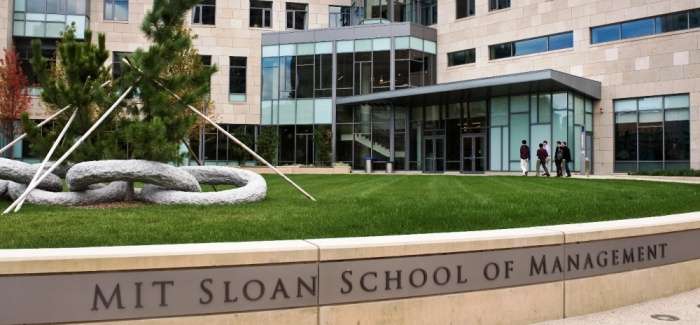
The Massachusetts Institute of Technology (MIT) Sloan puts emphasis on innovation in both practice and research. The curriculum which is 12 or 18 months long and can be adapted to meet your specific requirements. It is more focused on action learning which enables the students to apply concepts learned in the classroom to real-world business environment.
It has a legendary reputation, a world-renowned faculty and gives hands-on learning experience with the most advanced financial theories, quantitative models and practices.
MIT also has over 70 active clubs; some of which are Sloan Women in Management Club, Entrepreneurship & Innovation Club, the Design Club, the Finance Club, the Entertainment, Media and Sports Club, the Product Management Club, and the Technology Club.
Princeton University
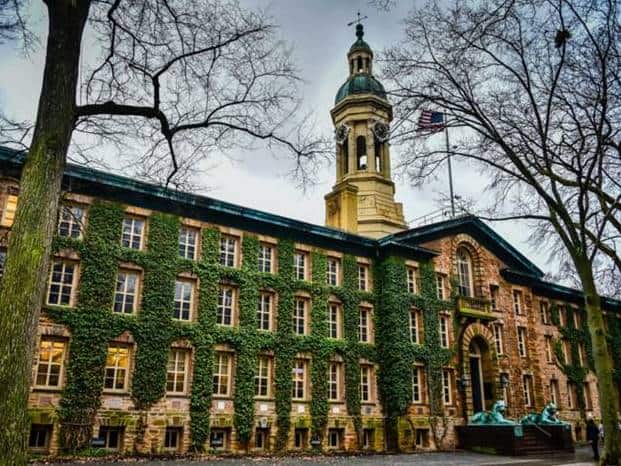
It is a private Ivy League University in Princeton, New Jersey whose admission policy is “need blind” which means that it does not consider the financial situation of the students while deciding their admissions and its financial program does not require work experience although it is a plus.
The Masters in Finance curriculum is designed such that it will be completed in the time period of four semesters which is to be taken on full-time basis. The students will be provided with a deep understanding of all the fundamental tools from computer science, economic theory, optimization, probability and statistics, all of which are now becoming vital for the financial industry. This enables the students to have a career both inside and outside of finance.
Vanderbilt University
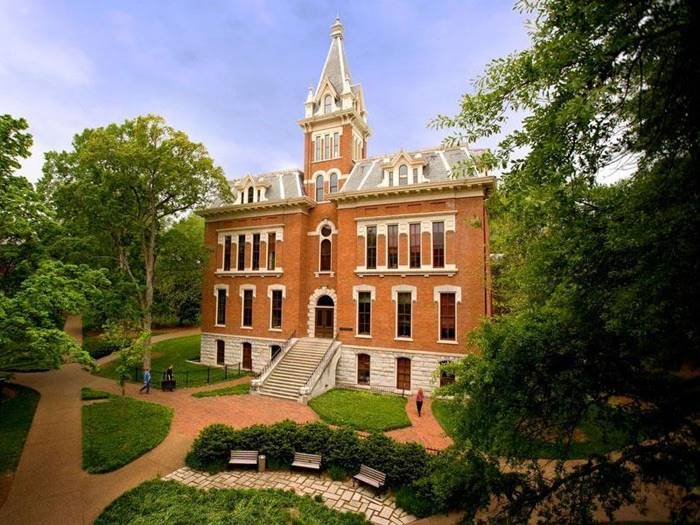
Vanderbilt University is a private research university which offers one of the best masters in finance program in the country. The program is a 10-month on-campus degree which provides rigorous training in technical skills that gives the students a wide array of career possibilities after graduation. The program is an MBA level finance curriculum taught by world-class professors that can be specialized as per the students’ requirements which will enable them to achieve their goals. Students can be eligible for merit-based scholarships which helps with the overall cost of the degree.
The university has an average of 98% employment within 90 days of graduation and has a wide range of student organizations ranging from academic to sports clubs.
Washington University in St. Louis
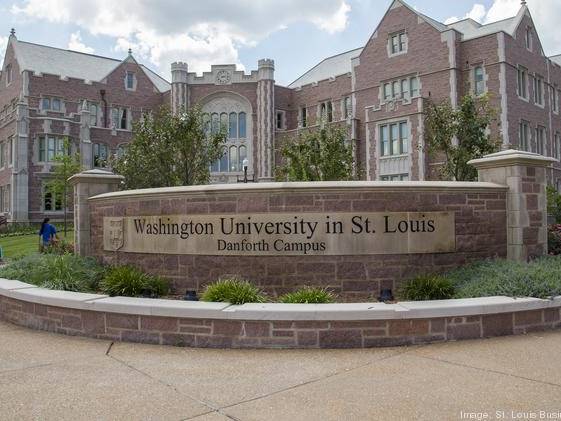
The Masters of Science in Finance degree at Washington University provides the students with a rigorous and comprehensive program that offers them in-depth knowledge about finance and the financial industry. The program itself is 11 months long, except for the Quantitative Finance Program which is a 17-month long curriculum and allows the students to have an internship in the summer semester.
The university has over 200 student organisations including musical groups, academic clubs, drama clubs and many more. It also has an exceptional alumni network and provides experiential learning with career support.
Brandeis International Business School
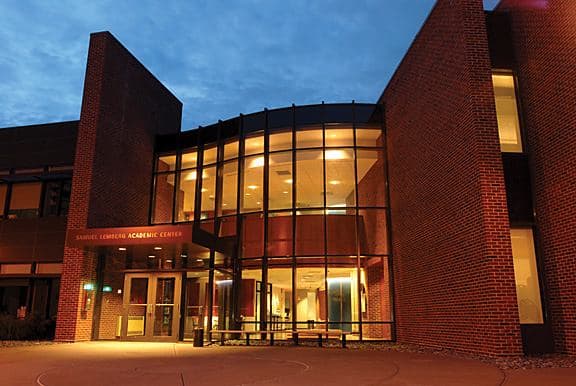
Brandeis International Business School is part of Brandeis University in Massachusetts which has over 3,000 alumni in over 100 countries. The university has an active student government as well as more than 250 student organizations including various acapella groups, more than 5 theater clubs, comedy clubs, and activist groups.
For further details on Top universities for Masters in Finance check out our Post – Top 30 Masters of Finance Programs
The MSF program from this university is a 16-month curriculum consisting of three full-time semesters and a summer internship. The few advantages of this program are that it requires no prior work experience from students and considers each and every one of them for partial and full tuition scholarships. It enables the students to focus on the skills and knowledge being offered by the program rather than worrying about its cost.
Work Permit (during and after graduation)

An international student studying in the US even has the opportunity to work part-time while school is in session whether it be to pay the tuition fee, gain some work experience or to just explore and earn a little extra money but they will be restricted by the terms of their visa.
Under the F-1 visa or the student visa, there are 4 legal ways in which a student can work:
On-Campus Employment
This is the most freely available employment opportunity that an international student has. In simple words, a student can work anywhere in the campus whether it be a library or a cafeteria or it can be an off campus research lab which is affiliated with the school. This is the only type of employment an international student can pursue within the first academic year itself and can apply for 30 days before classes even start. Work hours are limited to 20 hours per week while school is in session, but a student can work full time during vacations.
Off-Campus Employment
An international student can only work off campus when they have completed a full academic year and have some sort of economic hardship which is beyond their control. For this the student has to contact their School Official who must approve of the reason and recommend off campus employment. If approved by the U.S Immigration and Customs Enforcement the student can work for 20 hours per week.
1.Curricular Practical Training (CPT)
This type of employment is part of the school curriculum and is designed to give the students real world experience in their particular field of studies. Unlike the other kinds of employment, this does not have any hour per week restrictionsactivist is full time. Just like off-campus employment, the international student must have completed a full academic year to be eligible for a CPT.
2.Optional Practical Training (OPT)
This refers to the type of temporary employment which relates to the student’s field of study. A student can receive up to and no more than 12 months of employment in this way which can be divided into either pre or post competition (of studies) OTP or both. But if a student has participated in a year or more of full time CPT they are not eligible for OPT.
If a student wants to work in the US after completing their degree, they should find a job within the time period of the (student visa) F-1 VISA, so that they are able to apply for one of the different types of work visa (H-1B, H-2B, H-3, L-1 or O-1) which suits both the job and the company.
Masters of Science in Finance is an exceptional program for anybody who wants to have a career in finance or is simply interested in knowing more about the field. It is a meticulous as well as a competitive program which focuses on both the theory and practical aspects of finance. The applicants of this program have a clear idea about their short term as well as long-term goals, therefore, if you are ambitious, determined and hardworking, the degree in masers in finance will provide you with the knowledge to help you succeed. Some other schools which have a good MSF program are University of Rochester, Arizona State University, University of Southern California, University of Texas and University of Notre Dame.